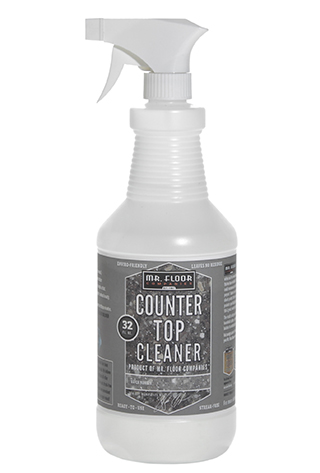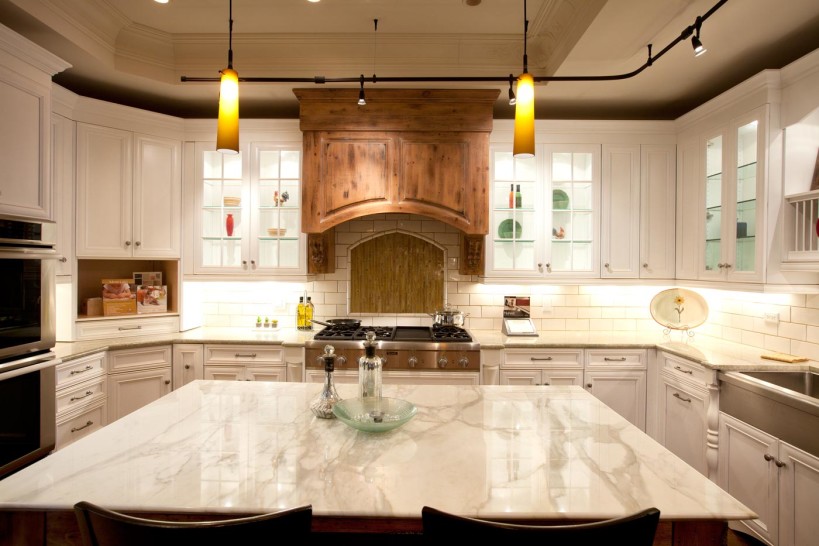Cleaning and Maintaining Marble, Limestone and other Calcareous Stone Countertops
There are two broad categories of stones used in countertops. The first is siliceous. Siliceous stone is made largely of silica a quartz-like mineral. Examples of Siliceous stone include granite, bluestone, slate, sandstone and quartzile, which has become very popular recently.
The second category of stone is calcareous. Calcareous stone includes marble, travertine, limestone and onyx, and are composed largely of calcium carbonate.
There are those who think that calcareous stone, marble in particular, does not make a good countertop because it is thought to be more porous and thus easier to stain and more likely to hold in bacteria. In truth, marble, limestone and other calcareous stones can make an excellent countertop if you understand the trade-offs and are prepared to maintain them properly.
Marble Countertop Myths
Let’s start by dispelling the myths.
First, marble, according several independent tests, is easily cleaned to a healthy and safe standard, with no more cleaning effort than recommended for manufactured quartz or granite.
Second, marble and travertine are very dense and they actually don’t stain easily. What they are susceptible to however, is etching. Etching is a chemical reaction between acid (lime juice, wine, vinegar, etc.) and the calcium carbonate in the stone. It manifests itself as a dull patch on the marble or travertine and no sealer will form a complete barrier against this natural process.
For hundreds of years, marble has been the countertop of choice in the finest European homes. They appreciate and even adore the matte finish that results from etching. If you want bright and shiny counters, choose a siliceous stone. However, nothing will look as warm and organically beautiful piece of veined Carrara or Calacatta marble.
If you choose marble, limestone or travertine for your counter, use preventative care such as coasters under all glasses, pads under hot pans, and be sure to blot up spills quickly.
Marble Countertop Cleaning
To clean a calcareous stone you can use a solution of dish soap and water. You will need to rinse of the soapy water completely to avoid creating a film, and should dry the countertop with a clean cloth to avoid spots.
An easier solution is to choose a specially formulated cleaner with a neutral, non-acidic pH, like Mr. Floor’s Stone Countertop Cleaner. (You can find out more about our marble cleaner here.) High quality natural stone cleaners will have the right balance between cleaning power and disinfectant and because they evaporate quickly and are use sparingly, they won’t leave a film.
What you don’t want to use is any harsh, acidic cleaners including vinegar.

Sealing Your Natural Stone Countertop
It is true that slate, marble and travertine will benefit from, and need more frequent sealing than granite. Natural stone sealants don’t actually seal. What they do is to repel the liquids that carry acids that would etch the stone. As with granite, today’s sealing process is essentially wipe-on, wait, and wipe-off, so it is not a time consuming task.
With proper care, your travertine, slate or marble countertop will look beautiful and perform well for years.
Igor Murokh
Igor is a graduate of the University of Illinois and holds a B.A. in Economics. He has worked in the flooring industry for over 30 years and is the VP and Sales Manager of Mr. Floor Companies in Skokie, IL. Igor is a certified wood flooring inspector (CWFI) and routinely helps clients assess flooring issues.

